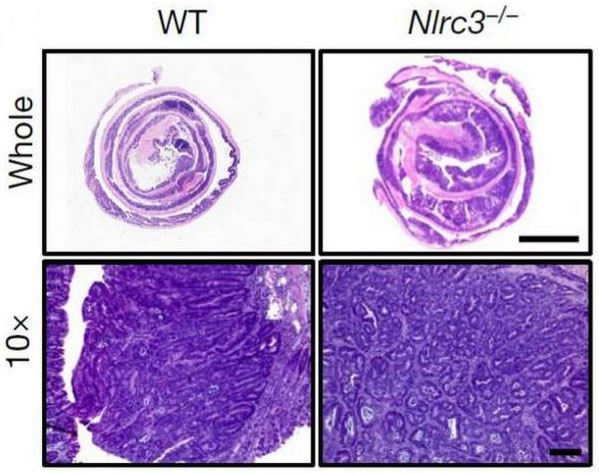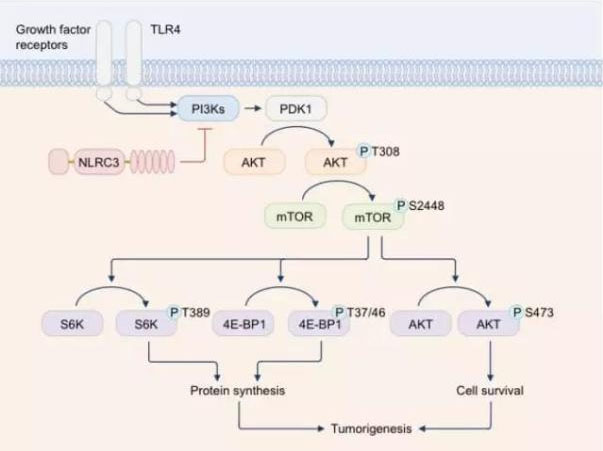From the United States St. Immunologists at Jude Children's Research Hospital have recently discovered a class of NLRC3, a key factor that inhibits colon cancer. The scientist who led the research was Dr. Thirumala-Devi Kanneganti of the Department of Immunology, and the related research was published in the recently published Nature Journal.
In the initial experiments, the researchers found that deletion of protective NLRC3 protein aggravates the development of colon cancer; it also identified key molecules in the NLRC3 tumor suppressor pathway, providing new drugs for protective therapeutic mechanisms against colon cancer. Target. NLRC3 belongs to a large class of NLR "receptor" molecules that regulate cytological functions such as the immune system. However, to date, the development of NLRC3 inhibition of tumors is still unclear.
Early studies have shown a significant down-regulation of NLRC3 expression in colon cancer patients. Kanneganti and colleagues explored in detail the regulation of NLRC3 in a key cellular signaling pathway, the PI3K-mTOR pathway, which regulates many physiological processes such as cell proliferation, immune response, inflammatory response, and tumors. Using an induced colon cancer model, Kanneganti and colleagues found that the expression of NLRC3 was significantly decreased in mice bearing colon cancer, a phenomenon consistent with human colon cancer patients. Colleagues also found that mice lacking the NLRC3 gene appeared to be more prone to colon cancer. More importantly, there is a mouse strain that tends to develop colon polyps, which, when lacking the NLRC3 gene, exhibits a higher probability of colon cancer.

Haematoxylin and eosin staining of tumours in colon
In another type of experiment conducted in mice, the researchers found that NLRC3 acts primarily in colonic epithelial cells and directly counteracts intestinal inflammatory responses due to infection or tumor cell development. “All of these experimental designs are complementary and further help us to confirm the function of NLRC3, which is essential for protecting the body from abnormal cell proliferation. When the NLRC3 gene is deleted, the tumor develops. "This suggests that if we can find a way to induce high expression of NLRC3 in the clinic, we can block the signaling pathway leading to tumor production," Kanneganti said.

NLRC3 negatively regulates TLR4-induced activation of the PI3K–AKT–mTOR pathway
Dehydrated Ginger, Dried Ginger, Air Dried Ginger Root, Cheap Ginger Slices, Ginger Single Spice
Jiangsu Tiankang Food Co., Ltd. , https://www.tiankangfood.com